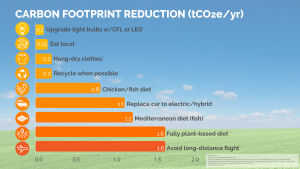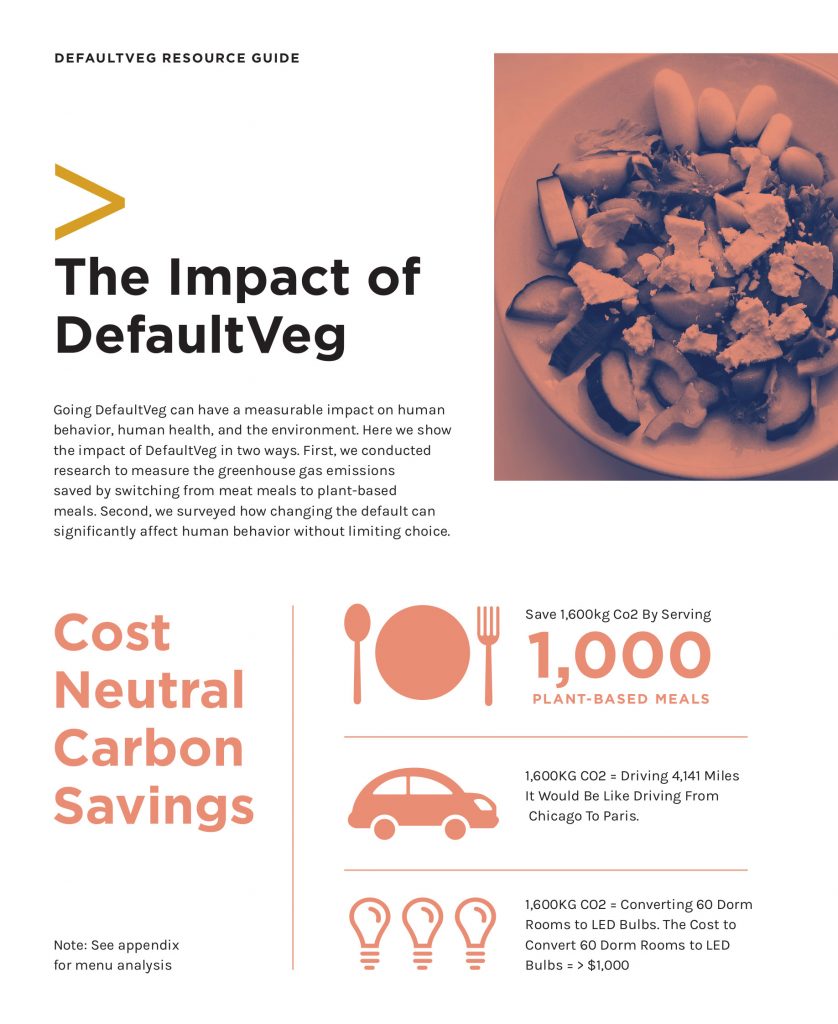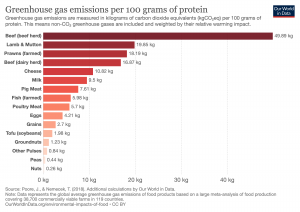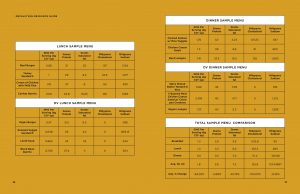Livestock agriculture is responsible for approximately 15 percent of global greenhouse gas emissions, and is cited by the UN FAO one of the primary drivers of environmental degradation. From deforestation due to agricultural intensification and industrialization, pollution of air, water and aquatic ecosystems, to biodiversity loss, livestock’s impacts expose the deadly costs of the global taste for meat.
A landmark study by scientists at the University of Oxford, the largest global analysis to date, revealed that the environmental footprint of livestock takes up 83% of farmland but provide only 18% of our calories. The authors found that “avoiding meat and dairy is ‘single biggest way’ to reduce your impact on Earth.”
The study, published in the journal Science, created a huge dataset based on almost 40,000 farms in 119 countries and covering 40 food products that represent 90% of all that is eaten. It assessed the full impact of these foods, from farm to fork, on land use, climate change emissions, freshwater use and water pollution (eutrophication) and air pollution (acidification).
“A vegan diet is probably the single biggest way to reduce your impact on planet Earth, not just greenhouse gases, but global acidification, eutrophication, land use and water use,” said Joseph Poore, at the University of Oxford, UK, who led the research. “It is far bigger than cutting down on your flights or buying an electric car,” he said, as these only cut greenhouse gas emissions. [The Guardian]
Comparing Personal Actions to Combat Climate Change
While upgrading light bulbs and sourcing only local food were initially recommended as key ways to shrink our carbon footprints, the following graph (based on four peer-reviewed studies) shows the powerful effect of dietary change among personal actions to shrink your carbon footprint. Switching to a plant-based diet saves ten times the carbon emissions of maintaining a typical North American diet sourced locally.

Sample Menu Analysis by DefaultVeg
Plant-based meals carry a lower GHG footprint than animal-based alternatives across the board.
“By comparing breakfast, lunch, and dinner meal options, we found that the GHG emissions of plant-based options were, on average, 63 percent lower than the GHG emissions of animal-based alternatives.”
DefaultVeg Resource Guide, p. 35
- Switching one meal from animal-based options to a plant-based option saves on average 1.6 kg CO2e, equivalent to driving an average American passenger car 4.14 miles
- Switching 1,000 meals saves 1,600 kg CO2e, equivalent to driving 4,140.9 miles or switching 60 light bulbs a year from incandescent to LED
- Finally, a direct nutritional comparison shows that compared to meat- based meals, plant-based meals contain, on average, 7.5 fewer grams of saturated fat, 156 fewer milligrams of cholesterol, and 157 fewer milligrams of sodium


